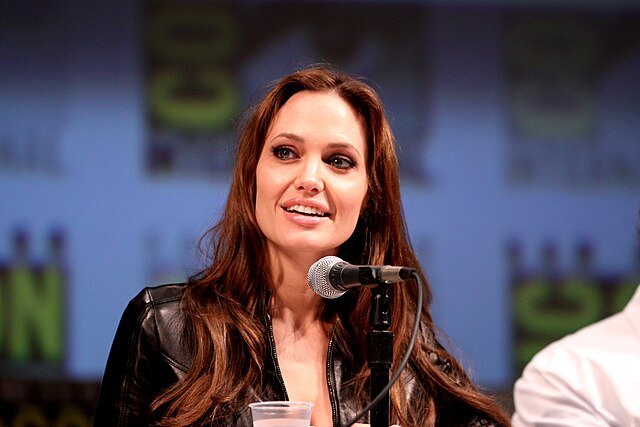Angelina Jolie, tormented and rescued by A-list superstardom and deep humanitarian commitment, is reimagining what it means to be a modern actress-activist in Hollywood. Blockbuster franchises and critically acclaimed dramas fill her resume alongside work on behalf of refugees worldwide.
Born June 4th, 1975 as the daughter of Oscar winner Jon Voight, she entered Hollywood via nepotism. Her 1982 debut film was Lookin’ to Get Out, taking an unorthodox route to stardom. By 1999, her transformation was marked by a performance that earned her an Academy Award playing a character role in Girl, Interrupted. In the early 2000s, Jolie became an international action heroine through Lara Croft: Tomb Raider, joining a small minority of female leads carrying major franchises.
Meanwhile, she developed a reputation for nuanced dramatic work in films like Changeling which earned her a second Oscar nomination. Outside film, Jolie emerged as a significant humanitarian force, working with UNHCR since 2001—bridging show business and activism in unprecedented ways. This dual identity has made her one of modern pop culture’s most emblematic figures.
Her portrayal of Lisa Rowe in Girl, Interrupted (1999) demonstrated psychological depth—winning the Academy Award for Best Supporting Actress. Jolie’s vulnerability combined with danger startled critics worldwide, making her one of history‘s youngest winners in that category at age 24. The role established her as a serious dramatic actress in films like Hackers (1995) and Playing God (1997). Industry insiders noted her fearlessness with challenging material, a trait that would define her career across genres.
2001’s Lara Croft: Tomb Raider turned Jolie into an action star noted for physical commitment, setting new standards for female leads. This success proved women could lead major franchises, further cemented by Mr. & Mrs. Smith (2005) which grossed $487 million worldwide. Subsequent action vehicles like Wanted (2008) and Salt (2010) showcased her box office draw, redefining expectations for women in action cinema.
Jolie received her second Academy Award nomination for Christine Collins in Changeling, delivering restrained yet deeply emotional work. Clint Eastwood praised her ability to portray grief without melodrama. Earlier, she demonstrated commitment to politically aware material with A Mighty Heart, where her authentic performance as Mariane Pearl showed commercial success could coexist with artistic integrity.
Jolie’s relationships drew relentless tabloid attention, particularly her marriage to Brad Pitt which ended in 2016. She has six children—three adopted internationally and three biological. Her family life reflects the global humanitarian values she champions. Despite fame, she maintains relative privacy about personal matters while continuing acting, directing, and humanitarian work that influences international policy.
Film historian David Thomson notes Jolie’s rare combination of movie star magnetism and serious acting chops. Human rights advocate Kenneth Roth emphasizes her policy-level activism beyond typical celebrity involvement. As she approaches 50, Jolie continues shaping Hollywood’s perception of older women stars through character-driven stories with social meaning, proving box office success and artistic value can coexist.

